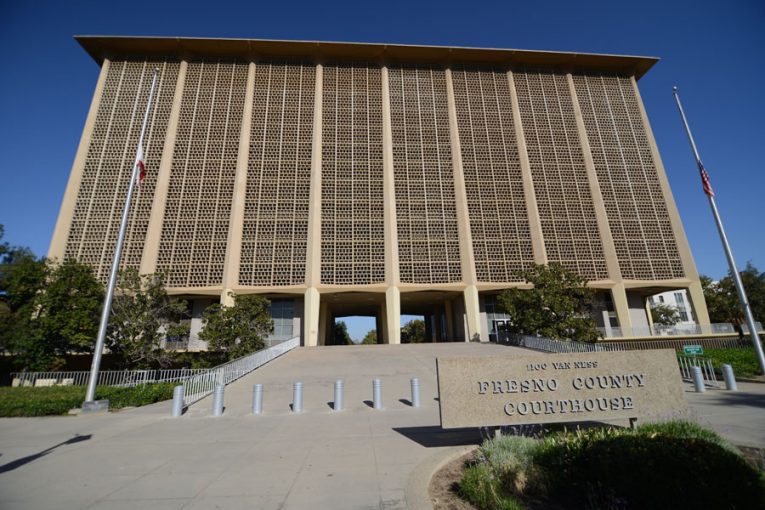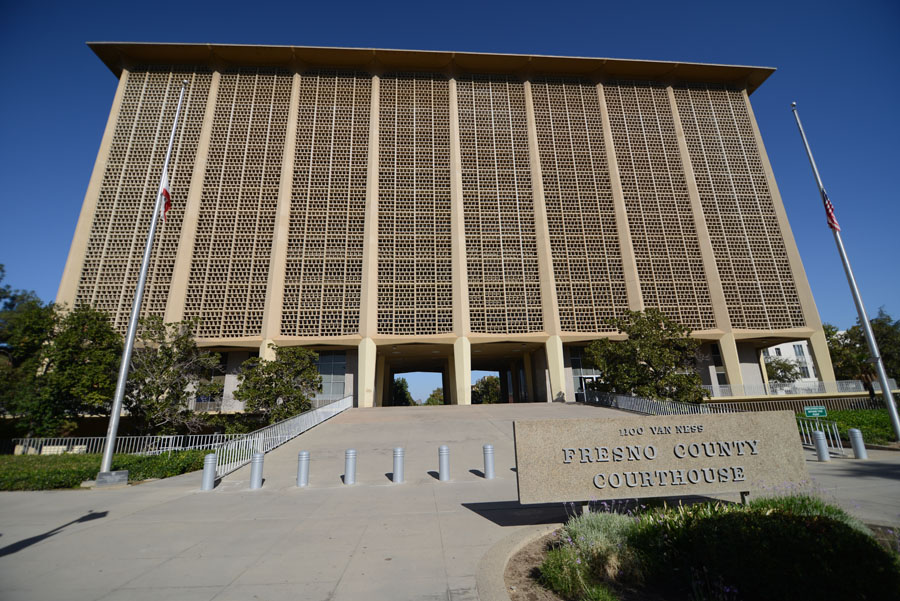

By Josué Monroy
FRESNO – Two homeless individuals were issued bench warrants for failing to appear in Fresno County Superior Court this week—and it was nothing new to Fresno, the state or the nation.
Judge D. Tyler Tharpe made the decision in Department 12 after two transient defendants in unrelated cases were no-shows, and had not communicated with counsel. Brian Becker and Joanne Jones were both due to appear in court for undisclosed misdemeanor offenses—neither had any way of being contacted.
Deputy District Attorney Bianca Aguayo deferred to Judge Tharpe as to the next proceeding.
“The People will submit to the court on this,“ said Aguayo.
In addition to the arrest warrants for the defendants, the judge ordered bail to be set at $2,300 for both.
According to studies, these situations play out in courtrooms across the country as homeless individuals are locked into a cycle of criminalization because of their lack of financial and social stability. The judicial process exacerbates this by requiring a person with no home or assets to come up with bail in order to be released on minor offenses. Predictably, most do not.
Homeless people are charged with standard, non-violent misdemeanors that stem from simply having nowhere to go. In California, standard misdemeanors such as sitting or lying in public, sleeping in public, loitering, and the broadly defined “camping” are all punishable by six months in jail, a $1000 fine, or both.
In the case of the two defendants in Judge Tharpe’s courtroom, they would each have to potentially pay up to $3.300 to the court for a single offense. Not only would this be extremely difficult for them to make good on, but even when released they are at a high risk of reoffending and perpetuating this cycle.
According to a report by the National Law Center on Homelessness & Poverty, 74 percent of homeless individuals do not know of a safe and legal place for them to sleep. This means that the basic act of sleeping could technically land a person back in jail after being released.
The report notes, “Imagine a world where it is illegal to sit down. Could you survive if there were no place you were allowed to fall asleep, to store your belongings, or to stand still? For most of us,  these scenarios seem unrealistic to the point of being ludicrous. But, for homeless people across America, these circumstances are an ordinary part of daily life.”
these scenarios seem unrealistic to the point of being ludicrous. But, for homeless people across America, these circumstances are an ordinary part of daily life.”
It’s unknown if the defendants in the Fresno County cases were charged with any of the aforementioned offenses, but the possibility is likely. A court system that functions to uphold the type of laws that criminalizes their basic activities does not incentivize transient individuals to participate in it, suggests the report.
The specter of mental illness is also a factor disproportionately affecting the homeless population. According to a 2015 assessment, 45 percent of homeless people had some form of mental illness. This makes it extremely difficult for them to actively participate in the judicial process in any meaningful way.
Some counties in California have sought to address the issue by forming homeless court programs (HCC) and community court programs (CCP).
The Judicial Council of California has developed a blueprint for such programs stating that “HCPs and CCPs leverage the authority of courts and the work of homeless service agencies to both intervene and help prevent the revolving-door syndrome that often leads indigent, mentally ill, and/or substance-abusing homeless people into a vicious cycle from the street, to jail, and back into the courts.”
San Diego County was the first in California to implement such an HCP, the San Diego Homeless Court Program, doing so in 1989. These have multiple locations, and are held monthly or bi-monthly in community-oriented spaces. They help approximately 1,200 clients per year.
Alameda County also runs a similar program. Established in 2004, the Homeless and Caring Court helps over 200 people a year.
Fresno County Superior Court has run a Homeless Court Program in the past as a partnership between the court, the district attorney, public defender, and the sheriff’s office. However, it is unclear that these interventions are currently being held or have been in the recent past.
This reporter was able a find a press release by Fresno County Superior Court announcing the Homeless Court Program dating back to 2011, but nothing more recent.
In fact, Fresno County seems to be moving in the opposite direction, if its recent attempt to overturn a court ruling that forbids cities and counties from criminalizing homeless camping is any indication.
To sign up for our new newsletter – Everyday Injustice – https://tinyurl.com/yyultcf9





